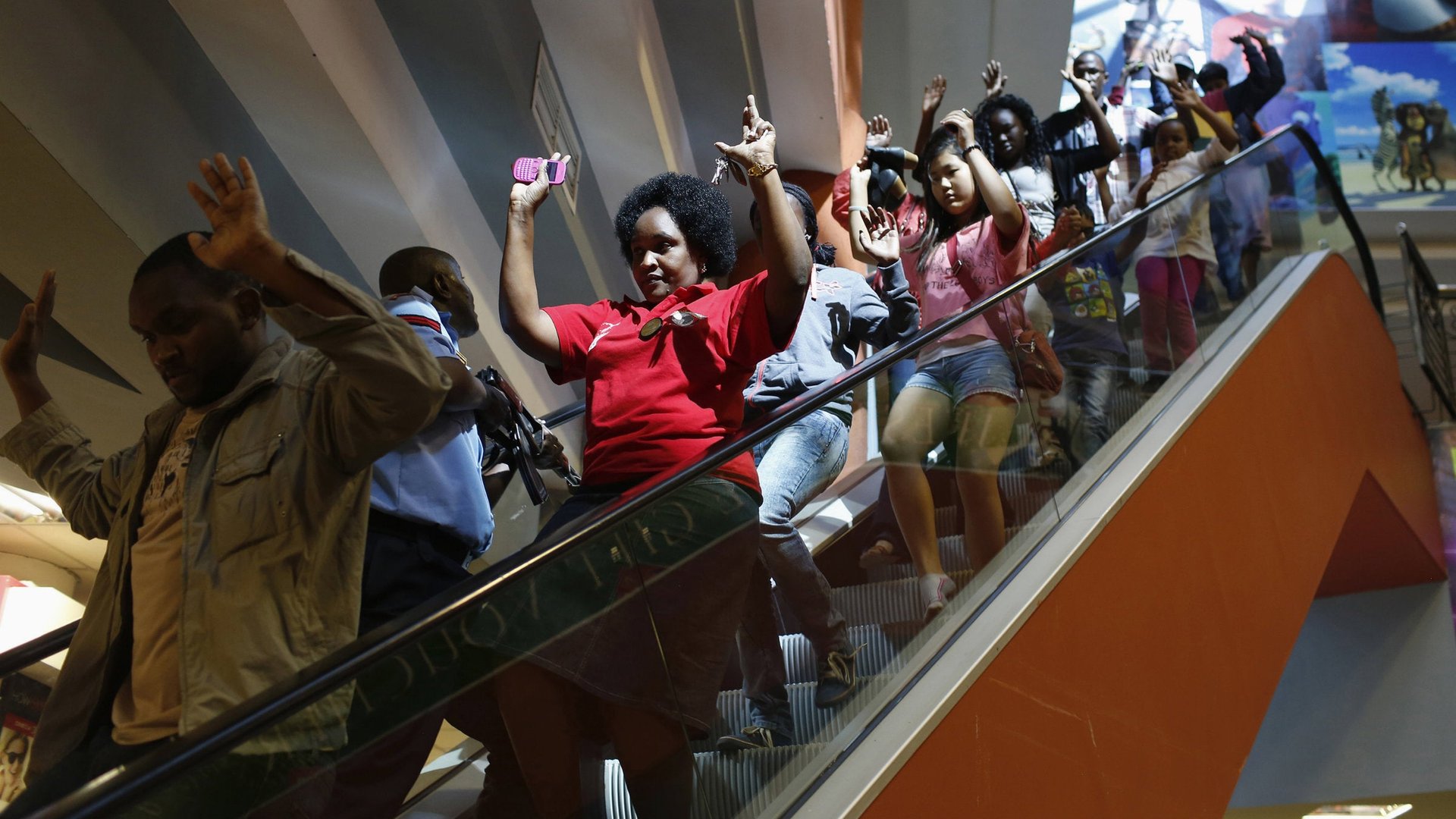The other casualty in the Nairobi mall massacre: Kenya’s economic progress
NAIROBI, Kenya—Kenya’s economic boom is only as secure as its borders.


NAIROBI, Kenya—Kenya’s economic boom is only as secure as its borders.
East Africa’s powerhouse was reminded of this over the weekend as heavily armed gunmen linked to a Somali Islamic militant group stormed one of Nairobi’s most exclusive malls, killing 68 people and taking hostages as the world watched the carnage.
Their target was not accidental: the shopping mall is a symbol of Kenya’s growing prosperity. And the individuals attacked were a cross-section of those who participated most fully in the economic growth. (Kenya’s GDP increased 4.6% in 2012, and 5.2% in the first quarter of 2013.) The attack was timed for Saturday morning to inflict maximum damage and destruction and targeted the high-profile Westgate mall typically frequented by expatriates, diplomats, and affluent Kenyans. These Kenyans, who benefited from economic advancement under former president Mwai Kibaki, have recently enjoyed an increase in spending power, and together with expatriates, have driven demand for property, luxury goods, fine dining opportunities, and the arts and services.
But the attack made clear that the prosperity hasn’t been accompanied by sufficient investment in security and intelligence gathering. This was the nightmare terrorist and hostage scenario that security analysts and observers had been warning of ever since Kenya intervened militarily in Somalia in October 2011 to wage war on al-Shabaab. The Somali terrorist group ostensibly claimed responsibility for the attack in a tweet on Saturday evening,
“We have been in the crosshairs of these guys,” says Abdullahi Halakhe, an independent Horn of Africa analyst. “They have been warning us about this since 2011. We have not taken this seriously enough and we have underestimated their capacity. This marks an extension of the al-Shabaab battleground from Mogadishu and into Nairobi.”
Despite the warnings, analysts say the scale and the sophistication of the siege on Westgate mall took the government by surprise.
“We are not going to be business as usual,” says Rashid Abdi, an independent Horn of Africa analyst. “This was a big wakeup call. We are not dealing with a ragtag army but a formidable and deadly insurgency capable of this scale of attack. There is a culture of complacency, and Kenya has become a soft target for Al Shabaab.”
Referring to the August 1998 attacks on the US embassy in Kenya, the last major terrorist attack in the country, Abdi said:
“Since the US embassy attacks in 1998 there has been a lot of investment into revamping the agencies but why have we not seen any improvement? We have been getting training and expertise from the West and from sister agencies but have failed to see it translate into improved intelligence gathering and security.”
The latest attacks mark a low point in a year that has already been plagued by political tensions. The country in March avoided a repeat of the general election violence and conflict seen in the previous cycle. But the trials at the ICC of president Uhuru Kenyatta, and his deputy William Ruto continue to create political uncertainty.
There will surely be fallout from this weekend’s violence. The attack targeted the country’s affluent and expatriates, who could see it as a reason to move and invest elsewhere. And tourism could be hurt in the short term. Already, various advisories warn against all but essential travel, prompting Raila Odinga, the former prime minister and leader of the opposition, to tweet: “This is not the time to issue travel advisories. Terrorism is a global challenge that we must meet as a united front.”
What’s needed now is swift and decisive action to stem further terrorism and reestablish the confidence of Kenyans and expatriates alike. An elaborate plan to ensure security of the borders, and the capital, is vital.